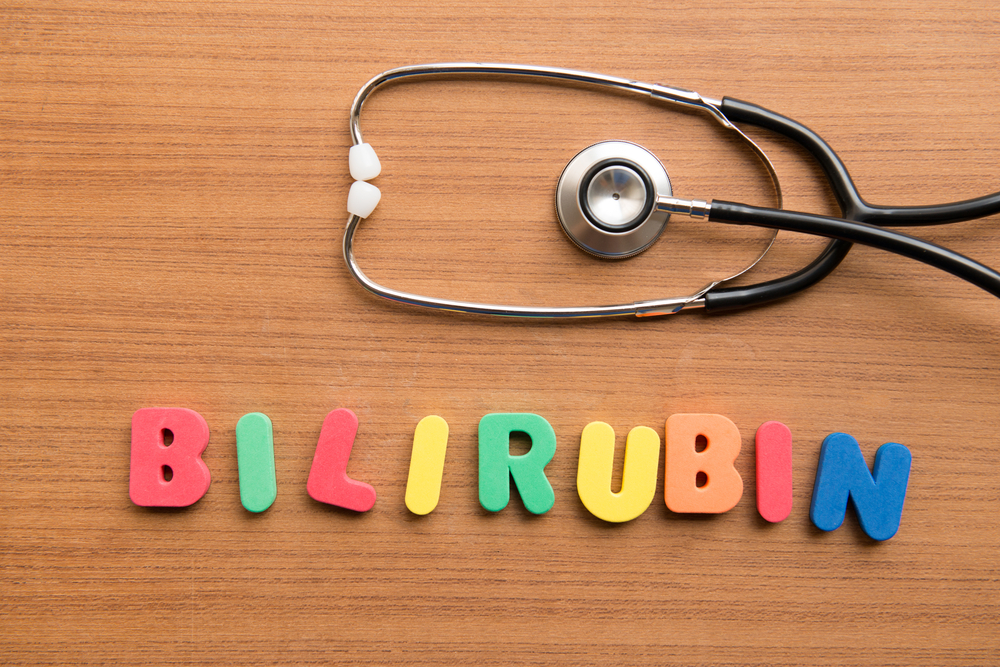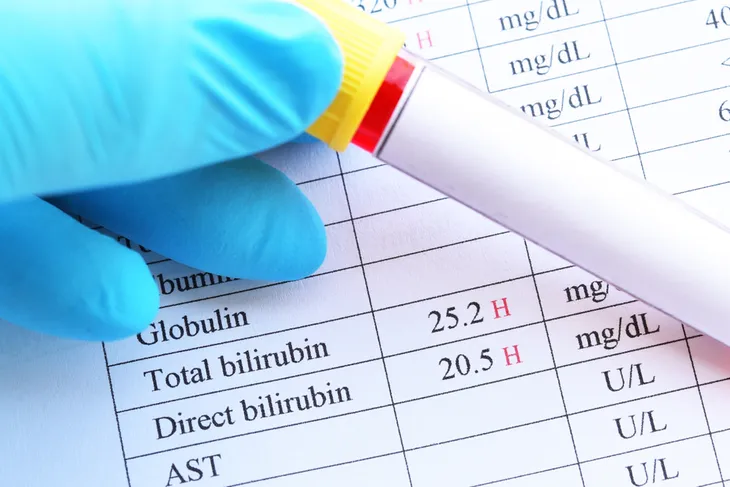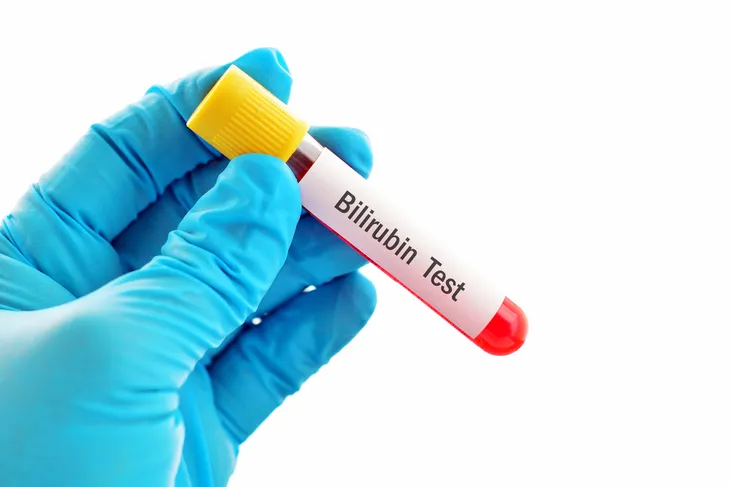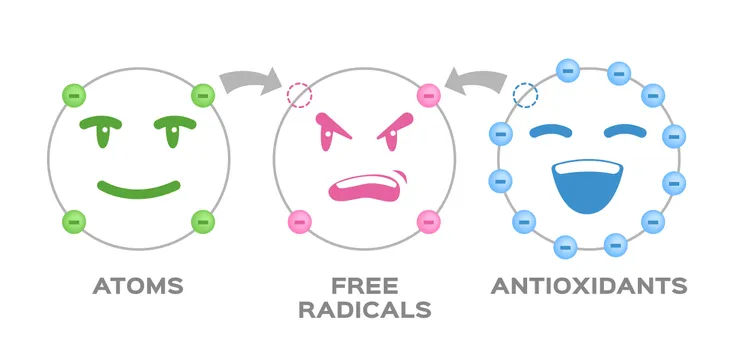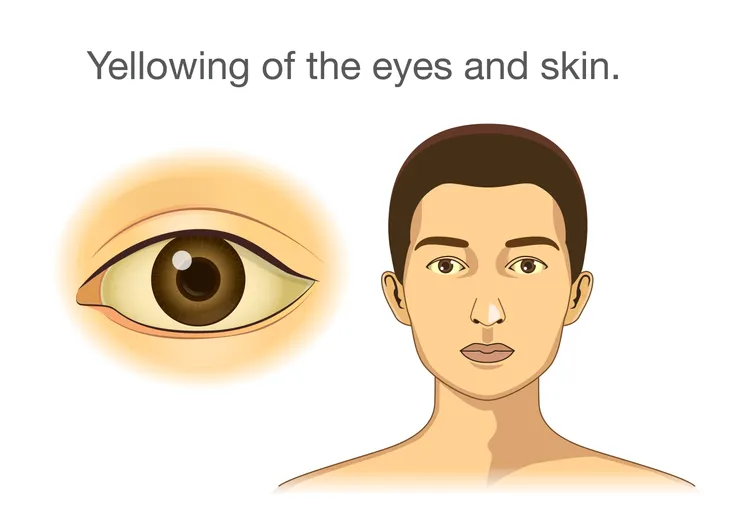Bilirubin is an orange-yellow pigment that occurs naturally in your blood. It forms after your red blood cells are broken down and is sent to your gallbladder, bile ducts, and liver. Your liver helps excrete it by changing its chemical make-up so that most of it can pass through your stool as bile.
What happens when you have low levels of bilirubin? Is it a cause for concern? In this article, we take a closer look at what is considered a low bilirubin level, the causes, and the symptoms you should be on the lookout for. Here’s everything you should know…
Types of Bilirubin
If you require a bilirubin test, you should know there may be a few kinds of bilirubin that show up on the test. First, unconjugated (indirect) bilirubin forms when hemoglobin from red blood cells is broken down and bound to a protein in the blood called albumin. Then it’s sent to the liver.
Next, conjugated (direct) bilirubin forms when bilirubin binds to glucuronic acid in the liver before it is passed out of the body through your stool. Both unconjugated (indirect) and conjugated (direct) bilirubin contribute to your total bilirubin, which refers to all the bilirubin in your bloodstream.
What Are Normal Bilirubin Levels?
If you do have a bilirubin test, according to the Mayo Clinic, normal levels for a total bilirubin test are up to 1.2-milligrams per deciliter (mg/dL) for adults. For those under that get of 18, up to 1-mg/dL. However, normal levels for a conjugated (direct) bilirubin test are typically < 0.3mg/dL.
It’s worth noting that normal results may vary for women and children. Certain factors can also affect test results such as strenuous exercise, some foods, and certain medications. It’s important to notify your doctor of any of these factors so they can ensure your results are accurate.
Possible Risks of Low Bilirubin Levels
The good news is that there is no definite link between low bilirubin levels and medical conditions. That said, some research believes that bilirubin can act as an antioxidant that protects the cells in your body from damage.
Healthline explains, “Based on bilirubin’s potential antioxidant properties, some believe that not having enough of it can leave certain body parts vulnerable to damage.” If these body parts do become damaged, it could lead to a variety of conditions like coronary artery disease, ulcerative colitis, brain lesions, strokes, and eye disease.
Symptoms of Low Bilirubin
Since low bilirubin levels aren’t usually a cause for concern, it doesn’t cause any symptoms. In fact, most individuals don’t even realize they have low bilirubin levels until their doctor requests a bilirubin test.
That said if you do have low bilirubin levels and start experiencing unusual symptoms you should speak to your doctor right away. This may indicate that you have an unrelated condition that requires attention.
Causes of Low Bilirubin
Thankfully, there aren’t any health conditions that cause low bilirubin. However, certain substances may temporarily lower your levels. These include caffeine, barbiturates, and nonsteroidal anti-inflammatory drugs.
If you have any of these substances before your test, it may interfere with the results and make your bilirubin levels appear falsely low. To prevent this from happening, you should avoid these substances before your test.
The Risks of High Bilirubin Levels
While low bilirubin levels are usually not a cause for concern, high bilirubin levels are. High levels of bilirubin are those above 1.2mg/dL, which is called hyperbilirubinemia.
High levels of bilirubin usually indicate an underlying condition, so it’s very important to discuss it with your doctor. One of the conditions it can lead to is jaundice. While this can happen to adults, newborn infants are more susceptible. Medical News Today explains, “This is because it takes some time after birth for an infant to start efficiently metabolizing bilirubin and excreting it in their stool.”
Symptoms of High Bilirubin Levels
The symptoms of high bilirubin levels will vary depending on the underlying cause. The most common cause of high bilirubin levels is jaundice. Jaundice can cause your skin and the whites of your eyes to turn yellow due to the high levels of bilirubin in your blood.
Other common symptoms of high bilirubin levels include abdominal pain/swelling, fever, chills, weakness/fatigue, chest pain, nausea, vomiting, and dark urine.
Causes of High Bilirubin Levels
A few different conditions can cause high bilirubin levels. This is why it’s important to explain all of your symptoms to your doctor to help them determine a diagnosis. The following are possible causes of high bilirubin levels:
- Gallstones
- Gilbert’s syndrome
- Liver dysfunction
- Hepatitis
- Bile duct inflammation
- Hemolytic anemia
- Intrahepatic cholestasis of pregnancy
When to See a Doctor
Thankfully, low bilirubin levels are not a cause for concern. However, if you’re experiencing any abnormal symptoms or symptoms that could indicate you have high bilirubin levels then you should talk to your doctor. High levels of bilirubin typically indicate that something is wrong with your liver or gallbladder, which requires attention.
